Search
Remove Ads
Advertisement
Search Results
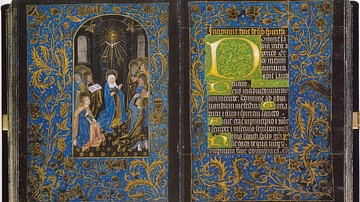
Article
Twelve Greatest Illuminated Manuscripts
Illuminated manuscripts are, as their name suggests, hand-made books illumined by gold and silver ink. They were produced in Western Europe between c. 500 and c. 1600 CE and their subject matter is usually Christian scripture, practice, and...
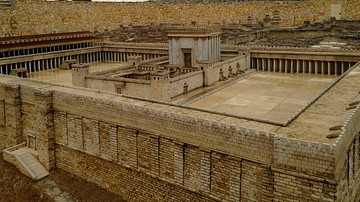
Article
Early Judaism
During the period of early Judaism (6th century BCE - 70 CE), Judean religion began to develop ideas which diverged significantly from 10th-to-7th-centuries BCE Israelite and Judean religion. In particular, this period marks a significant...
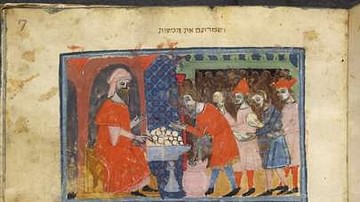
Article
Passover in the Hebrew Bible
Passover is a Jewish festival celebrated since at least the 5th century BCE, typically associated with the tradition of Moses leading the Israelites out of Egypt. According to historical evidence and modern-day practice, the festival was...
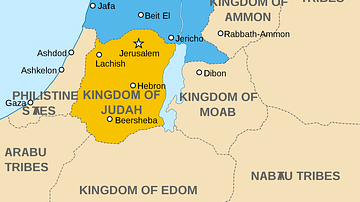
Article
Ancient Israelite & Judean Religion
As early as the 10th century BCE, Israelite and Judean religion began to emerge within the broader West Semitic culture, otherwise known as Canaanite culture. Between the 10th century and 7th centuries BCE, ancient Israelite and Judean religion...
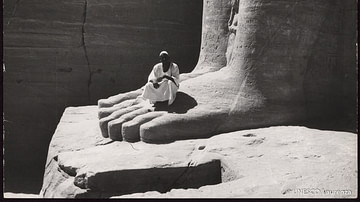
Collection
UNESCO's Nubia & Abu Simbel Campaign
This collection is really dear to us as it is the fruit of our new collaboration and partnership with the UNESCO Archives. They have digitized a vast amount of resources that can be found on their platform and you can read all about their...

3D Image
Assyrian Rider Statue
Assyrian rider statue, Jbeil (Byblos, Lebanon), terracotta, c. 700 CE. Musée du Cinquantenaire (Brussels, Belgium). Made with CapturingReality. The style of this work is similar to that of the production of Amrit, a religious center on...

Video
UNESCO Archives Film Collection - The World Saves Abu Simbel (1972)
Digitized by the UNESCO Archives. A production of UNESCO and the Abu Simbel Joint Venture. When the work began on the High Aswan Dam in Upper Egypt, the two temples of Abu Simbel, carved in the living rock which rises from the banks of...

Collection
15 UNESCO World Heritage Sites
Ancient History Encyclopedia has over 100 articles on UNESCO World Heritage sites, and in this collection, we look at just a few of them. The selection of sites, some well-known and others much less so, represents cultures from around the...
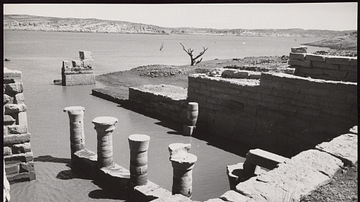
Image
Greco-Roman Temple in Nubia
Greco-Roman Temple, the largest in Nubia after the temples at Abu Simbel, constructed at the time of Augustus upon another building from the 15th century BCE.
Kalabsha, Nubia, Egypt - October 1959

Definition
The Medieval Church
Religious practice in medieval Europe (c. 476-1500) was dominated and informed by the Catholic Church. The majority of the population was Christian, and "Christian" at this time meant "Catholic" as there was initially no other form of that...